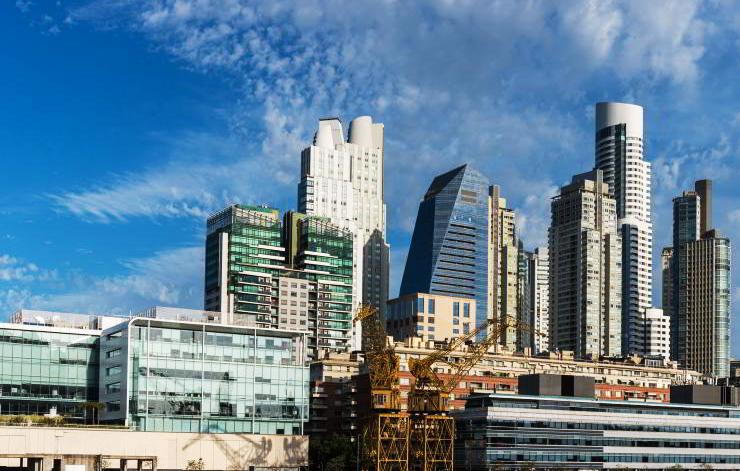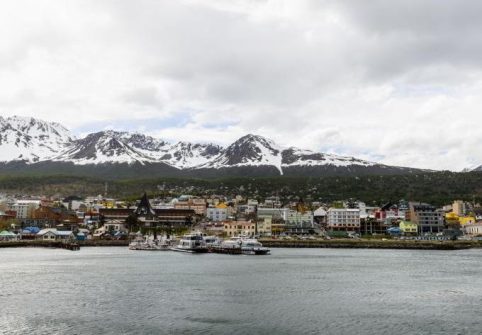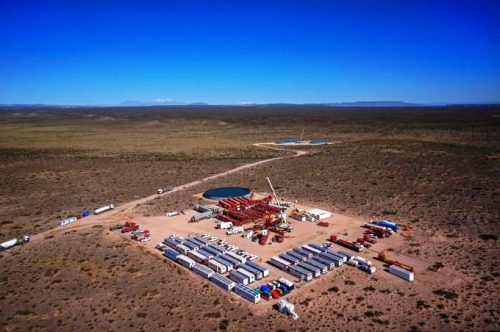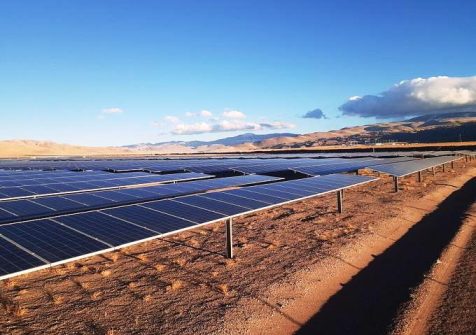Diversified Economy.

Argentina presents itself as a country with much potential, but held back by structural weaknesses that have limited its development
for decades.
The economy is formally diversified, and agriculture, industry and services contribute significantly to the GDP. However, the agri-food sector is the main driver of exports, with soy, corn and wheat constituting the backbone of Argentina’s foreign trade, guaranteeing crucial revenues in hard currency. Yet, behind these numbers lies a more complex reality. Fluctuating economic policies, rampant inflation and currency instability discourage investments and fuel a climate of uncertainty. Entrepreneurs struggle to plan, while foreign capital remains cautious. In this context, ambitious projects such as the Antarctic Logistics Hub are taking shape, an infrastructure that looks to the future and aims to strengthen Argentina’s geopolitical role on the white continent. The Pole, in addition to supporting scientific research, could become a strategic hub for logistics and access to the natural resources of the Antarctic, in an area that is increasingly contested at
an international level.

Ushuaiais is the capital of Tierra del Fuego. To strengthen Argentina’s geopolitical role on the white continent. 123rf
Another economic frontier is the maritime one. Fishing, in particular that of squid (the famous illex argentinus), is a growing item. But the massive presence of foreign fleets, especially Chinese, in the waters of the South Atlantic has turned the spotlight on sensitive issues such as territorial sovereignty, environmental sustainability and the control of resources. The Argentine government finds itself having to defend its economic interests while at the same time guaranteeing the protection of marine ecosystems and food security for coastal communities.
Meanwhile, the industrial sector, once the pride of the country, is experiencing a phase of stagnation. Car production, chemicals and agro-industry are still operating, but they have to deal with high costs, heavy bureaucracy and difficulty accessing credit. Inflation, which has exceeded 100% annually in recent years, continues to undermine purchasing power and fuels social discontent.
The new government, which took office with the promise of liberalising the economy and reducing the burden of the State, has launched an agenda of shock reforms: cuts in public spending, reductions in subsidies and opening up to international capital. The goal is to restore confidence in the markets and boost competitiveness, but the measures have already caused social tensions and street protests with the risk of a new wave of polarisation, in a country where inequalities are growing and poverty affects over 40% of the population.

Vaca Muerta is one of the world’s largest reserves of unconventional gas and oil. 123rf
However, Argentina is not without cards to play. One of the most important is called Vaca Muerta, one of the world’s largest reserves of unconventional gas and oil. The exploitation of this area could represent a turning point for the economy, with positive effects on employment, exports and the trade balance. But the potential remains partly untapped, blocked, as it is, by infrastructural obstacles, regulatory instability and difficulties in accessing capital.
Then there is the issue of energy transition. Argentina signed the Paris Agreement and committed to reducing emissions, but it remains heavily dependent on fossil fuels. Balancing economic growth and environmental sustainability will be one of the most delicate challenges of the coming years.On the international level, Buenos Aires continues to look with interest at Mercosur, especially Brazil, the country’s first trading partner. But relations with China are growing most rapidly since Beijing is now a key player, both for the purchase of Argentine raw materials and for investments in infrastructure and strategic sectors. In particular, Chinese investments in infrastructure in Argentina represent a crucial component of bilateral cooperation, especially in the context of the Belt and Road Initiative (BRI). These investments range from transportation to energy, with significant projects such as the upgrade of the Belgrano Cargas and San Martín railway lines, financed by Chinese loans totalling approximately $4.7 billion. The Belgrano Cargas and San Martín Cargas railway lines are strategic for Argentina because they connect the agricultural and mining regions of the interior with the ports, reducing logistics costs and encouraging exports. They are also essential for the economic development of the less industrialised provinces. China has invested in these projects to ensure stable access to raw materials such as soy and lithium. Furthermore, Chinese financing involves the use of Chinese companies and technologies, ensuring a direct economic return. It is a cooperation of mutual interest, but with geopolitical implications.

Solar panels installed in Cauchari. The largest solar park in Latin America. CC BY-SA 4.0/Manuel arequipa
In the energy sector, the construction of the Cauchari solar park, the largest in Latin America, and the Jorge Cepernic and Néstor Kirchner dams stand out, with an investment of almost 4.8 billion dollars by a consortium led by the Chinese group Gezhouba
Ultimately, Argentina is at a crossroads. On the one hand, cyclical crises and distrust towards institutions continue to weigh down the economy. On the other hand, natural resources, its strategic position and human potential could mark a new phase of recovery, if accompanied by coherent policies, targeted investments and a more stable political climate.The real challenge today is that of transforming potential into reality. And to do so in a global context in which opportunities are not lacking, but require vision, credibility and the ability to mediate. Three elements that, in the recent history of the country, have often been lacking. (Open Photo: Buildings in the financial district in Puerto Madero, Buenos Aires. 123rf)
Filippo Romeo



